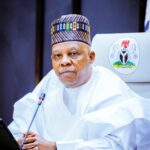The West African Network for Peacebuilding (WANEP), has called on the government and relevant authorities in the West Africa region and the Lake Chad basin to invest in peacebuilding to tackle conflict.
The organisation made the call on Monday, at the beginning of a 3-day training workshop on conflict prevention, violent extremism, Crisis management and peacebuilding, in Abuja.
This was organised by the Research and Action for Peace Network (REcAP Network), and implemented by WANEP, in partnership with the Stockholm International Peace Research Institute (SIPRI), and the Danish Refugee Council (DRC), with funding from the European Union (EU).
The project seeks to establish a sustainable, more inclusive, and effective regional network of experts specialised in peacebuilding, the prevention of conflicts and violent extremism in 18 countries in West Africa and the Lake Chad Basin to act as an interactive platform for regional cooperation.
- Insecurity: We’re focused on eliminating threats — COAS
- Yahaya named best-performing governor in healthcare delivery
Regional Coordinator, Research and Capacity Building WANEP-Regional, Festus Kofi Aubyn, during his presentation on ‘conflict and conflict prevention,’ noted that for every conflict experienced in an environment, there have been early warning signs neglected by the authorities.
According to Aubyn, situations that lead to conflict are escalated because relevant authorities do not make concerted efforts to tackle immediate actions that result in conflict.
He noted that peacebuilding is not a one-off event as warring parties should be allowed to air their perspectives and then settle for a compromise as this leads to the building of relationships which is important in resolving conflict while also advocating for preventive mechanisms.
He said, “Conflict prevention is very key. We do not have to always be preventive but proactive. This is to ensure that conflict does not start in the first place.”
Proffering solutions to crisis management and Peacebuilding, Aubyn urged the use of systematic, direct, and structural methods, noting that conflicts are dynamic and various individual perspectives need to be carried along.
“Poverty and employment can be causes of conflict in society if not tackled in a long period, but can not be resolved through direct or systematic means of prevention. However, a structural means of prevention can be applied as this is a process that takes a longer time to properly address conflicting issues.
“The aim is to reduce violence as well as address the root causes of the violence. It is for a longer term. It involves a wider range of issues and actors, he said.
The Nigeria National Network Coordinator WANEP, Dr Bridget Osakwe, on her part, noted that resources do not create conflict except if there is a deliberate intention to use them.
Osakwe highlighted the need for conflict analysis in peacebuilding, noting the strategy deployed in bringing conflict to an end is only as good as the analysis carried out. Otherwise, it will not yield positive results.
She underscored the need for the government to provide basic amenities for the citizens, especially those in rural areas.

 Join Daily Trust WhatsApp Community For Quick Access To News and Happenings Around You.
Join Daily Trust WhatsApp Community For Quick Access To News and Happenings Around You.


